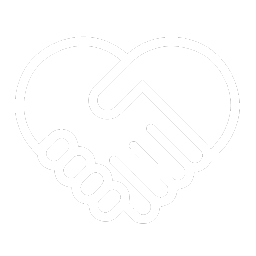Everyone feels anxious from time to time, so it’s not always easy to know when it is part-and-parcel of daily life, and when it’s time to seek help. In most people, anxiety is short-term and self-correcting, but for a significant minority this is not the case. For these individuals, it is important to seek treatment just as you would for any other health conditions. Here we discuss six warning signs that may indicate that it’s time to seek professional help.
What are the signs?
Excessive worrying
One of the common signs for people who have Generalized Anxiety Disorders (GAD) is that they worry a lot. They worry excessively even though they know that their worries may not be real. For example, Their worries may be mutually reinforcing as a chain for example they worry that their boss may not like them, that they may lose the job, that they may not be able to support their families, that their spouse may divorce them and the lists go on.
Agitation
If you are constantly feeling agitated, it could be a sign of anxiety too. It is the way your body is preparing you for the perceived danger or threat. Usually, this feeling is also accompanied by various bodily reactions such as racing pulse, sweaty palms, shaky hands, and dry mouth.
However, this symptom may also be easily confused with other medical conditions that are hormone related, such as Premenstrual Syndrome. Therefore, it is important for you to speak to your GP to ascertain if it is a health or mental issue.
Restlessness and tense muscles
Are you finding it hard to rest as your brain is constantly active and ruminating? As a result, your body cannot shut off completely when it comes to bedtime, causing you to have a sleepless night or insomnia. Sleep deprivation can elevate the risk of anxiety disorders. Insomnia can also worsen the symptoms of anxiety disorders or inhibits recovery.
Fatigue and difficulty in concentration
Are you perpetually feeling tired and dizzy? Then probably, you are experiencing fatigue. Fatigue is often caused by prolonged mental or physical exertion. When we feel anxious, our body gets into a hyperactive or arousal mode. In severe cases, fatigue can even cause a panic attack. When a person has a panic attack, they may feel like they are dying as their heartbeat quickens and their chest tightened and they have excessing sweating and difficulty in breathing.
Chronic fatigue and hypervigilance can affect a person’s concentration level and also memory. It may also affect one’s ability to communicate effectively and performing well at work.
Irritability and irrigational fears
Irritation refers to something that causes annoyance or a feeling of displeasure. For example, people with anxieties find it hard to cope with unexpected ideas or negative feedbacks. They get defensive or irritable. They start to doubt themselves, thereby fueling their stress and anxiety further.
Avoiding social situations
People with social anxiety tend to feel distressed about social situations and will try to avoid them as much as possible. They worry a lot about upcoming social situations as they are afraid of being judged or humiliated in front of others. Coping by avoiding social events may relieve their anxious feelings, but it may also hinder them from having meaningful relationships.
Bear in mind that no one sign is conclusive in indicating anxiety disorder. You can also consider doing this self-help assessment that may help you to decide your next course of action. If you are still unsure, you can book a 20-min free consultation to speak to our psychotherapists who will be able to give you advise on which treatment might work best for you.





